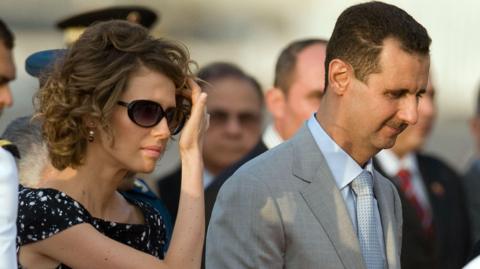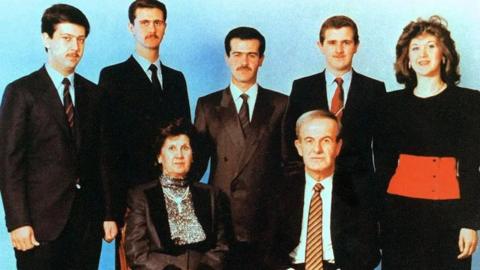Following the fall of the Assad dynasty, Amnesty International's secretary general Agnès Callamard said Syrians had been subjected to what she called "a horrifying catalogue of human rights violations that caused untold human suffering on a vast scale".
This includes "attacks with chemical weapons, barrel bombs, and other war crimes, as well as murder, torture, enforced disappearance and extermination that amount to crimes against humanity".
She called on the international community to ensure that people suspected of breaking international law and other serious human rights violations must be investigated and prosecuted for their crimes.
On Tuesday, the Islamist rebel leader in Syria said any of the ousted regime's senior officials found to have been involved in torturing political prisoners would be named.
Abu Mohammed al-Jolani also said his so-called Syrian Salvation Government would seek to repatriate officials it identified who fled to another country.
In France, investigative judges have sought an arrest warrant for Assad for alleged complicity in crimes against humanity and war crimes, in connection with a deadly chemical attack in Syria in 2013 under the legal concept of universal jurisdiction.
Russia does not extradite its own nationals - a legal process whereby someone is returned to another country or state to face trial for a suspected crime.
Assad is unlikely to leave Russia to go to a country where he could be extradited back to Syria or any other that might charge him with a crime.

